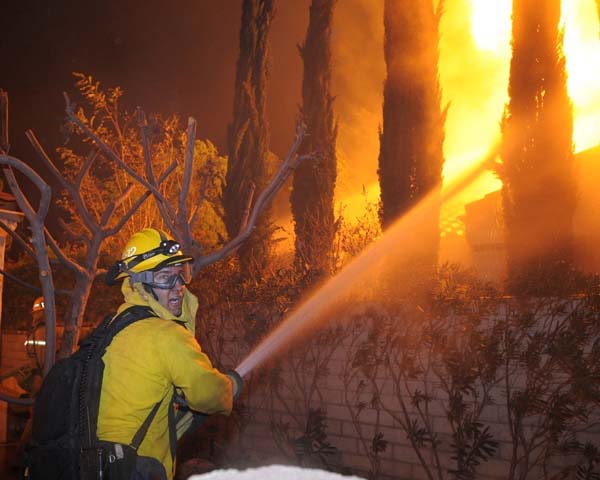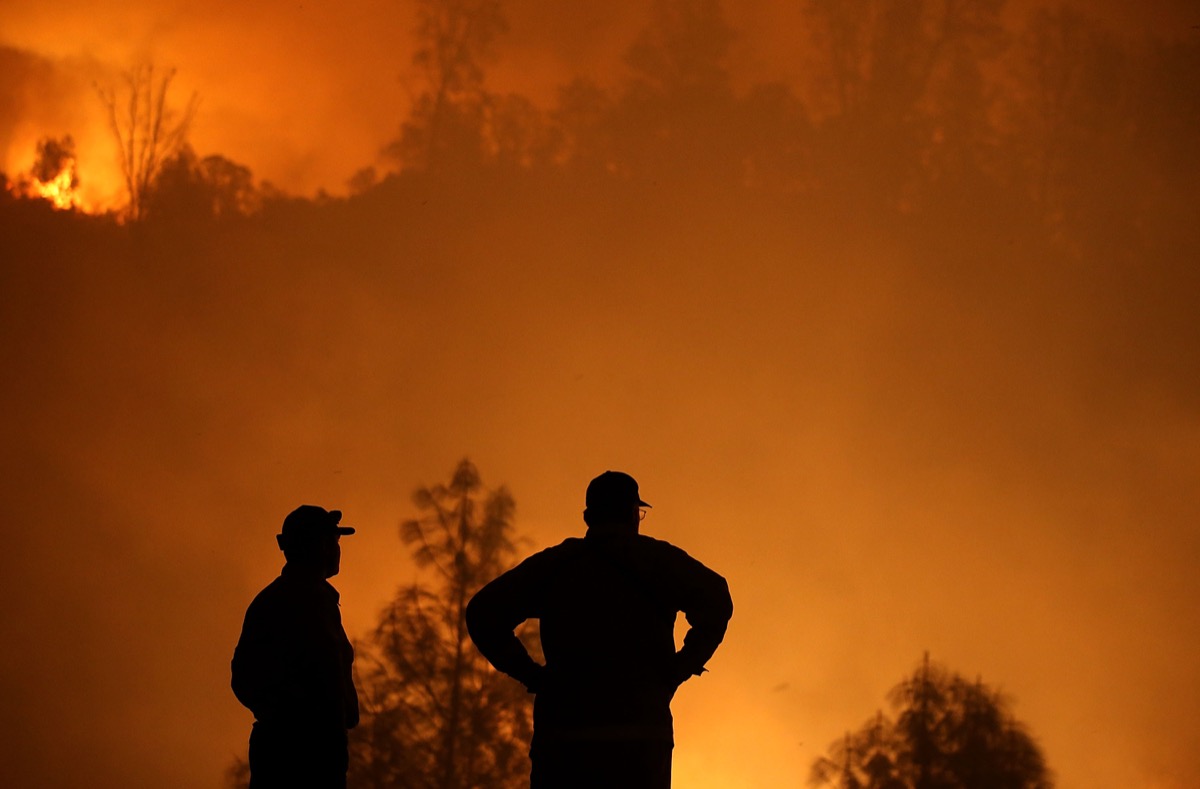Gov. Gavin Newsom announced more than $200 million in proposed spending Wednesday for statewide safety enhancements in preparation of wildfire season.
The proposed spending, the bulk of which will be allocated to Cal Fire and the state's Office of Emergency Services, will be included in the state's May budget revision, scheduled to be announced Thursday.
If included in the final budget next month, the state would allocate $127 million to the OES for wildfire safety preparations, early warning technology for earthquakes and grants for counties affected by power shutoffs meant to prevent electrical equipment from sparking fires.
The funding would also support the establishment of a wildfire safety division within the California Public Utilities Commission. The 106-member team would provide 24/7 oversight of the state's three largest investor-owned utility companies: PG&E, San Diego Gas & Electric and Southern California Edison.
"We are in a place we've never been in the past in terms of oversight and accountability and transparency with our investor-owned utilities to help support these wildfire efforts," Newsom said.
The proposed budget also includes $85.7 million for Cal Fire to improve its surge capacity and hire some 600 additional firefighters and first responders before the peak of wildfire season later this year.
Newsom said the state intends to procure an additional 26 fire engines by July for Cal Fire's use throughout the state. The state has also begun receiving the dozen Blackhawk helicopters it purchased last year.
According to state fire data, from January 2019 to May 10, 2019, 675 fires burned throughout California. During that same period this year, 1,135 fires burned across the state, according to Newsom. The state also dealt with a relatively dry winter and, as a result, has seen its snowpack fall below its level at this time last year.
Newsom challenged people who are skeptical of the scientific evidence of climate change to come to California once the state's COVID-19 coronavirus shelter-in-place order is lifted to experience the effects on the state in person.
"Even if you deny it, your own eyes may tell you something very, very differently," he said. "Observed evidence, not just intellectual curiosity, should secure a new reality that climate change is real, and it's here and the effects are profound."



